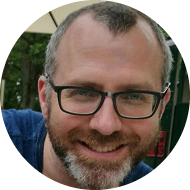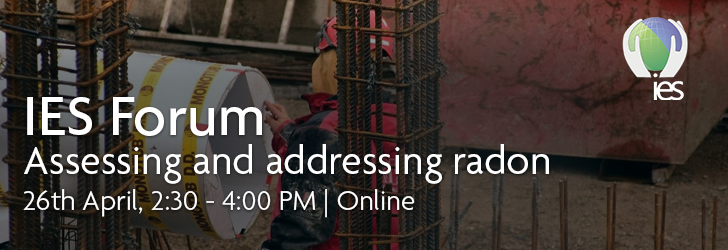Radon is a naturally occurring radioactive gas which can't be seen, smelt or tasted. Radon is present all over the UK, but there can be higher levels found in certain areas. It is an important issue for professionals working in land condition, as buildings in higher risk areas can accumulate radon indoors with resultant health impacts. It is important that radon risk is therefore properly managed through appropriate measurement and mitigation actions.
This forum will feature three expert speakers exploring the issue of radon in relation to contaminated land and buildings. They will explore how radon levels can be assessed, as well as the regulations for buildings in the UK in relation to radon and best practice in managing it. The speakers will present on the following:
- A very brief overview of radon protection in UK buildings - A quick introduction to radon, what it is, where it is from and what it does. This overview will cover UK good practice for new builds and exploring current regulator requirements.
- Radon – should assessment be the same as any other ground gas? - An exploration of whether the UK approach of using Radon Maps is still fit for purpose. The speakers will explore how other countries approach radon investigation and mitigation assessment and how it could be adopted in the UK.
- Addressing radon in basements in low risk areas: A London Borough’s view - An outline of Kensington and Chelsea Council’s journey to highlight and address the issue of radon in basements. Currently, the building industry tends not to considers radon in basements in areas that are considered to represent a lower risk to occupiers' health (as shown on Health Security Agency (previously Public Health England) radon maps). Approved Document C and BR211 guidance suggests that in basements, while radon levels in low risk areas of the county are comparatively low, a residual risk may still exist which could be significant in some cases. The presentation will set out the Council’s developing approach, the factors and monitoring data considered and likely way forwards.
Our speakers
 John Naylor is the Technical Director at GGS and has over 20 years of real world experience dealing with hazardous ground gases. He specialises in continuous monitoring and assessment including the development of new instrumentation and tools to help provide better understanding of the risks posed. John also heads GGS independent verification services for gas protection and is a founding member of the British Verification Council.
John Naylor is the Technical Director at GGS and has over 20 years of real world experience dealing with hazardous ground gases. He specialises in continuous monitoring and assessment including the development of new instrumentation and tools to help provide better understanding of the risks posed. John also heads GGS independent verification services for gas protection and is a founding member of the British Verification Council.
He currently sits as the Vice Chairperson of the Radon Council and actively seeks to promote radon awareness and good practice within the industry, helping deliver training to fellow professionals in the sector.
 Steve Wilson specialises in the investigation, assessment and mitigation of ground gas, including radon and hydrocarbon vapours. He has written several key technical papers on this subject and has contributed to most of the recent CIRIA, British Standards and Chartered Institute of Environmental Health guidance on ground gas assessment and mitigation. He advises local authorities on planning, Part IIA and other issues relating to ground and landfill gas and acts as an expert witness in legal proceedings. Steve has particular expertise in completing radon risk assessments considering the geology of a site and the rate of radon permeation through building materials.
Steve Wilson specialises in the investigation, assessment and mitigation of ground gas, including radon and hydrocarbon vapours. He has written several key technical papers on this subject and has contributed to most of the recent CIRIA, British Standards and Chartered Institute of Environmental Health guidance on ground gas assessment and mitigation. He advises local authorities on planning, Part IIA and other issues relating to ground and landfill gas and acts as an expert witness in legal proceedings. Steve has particular expertise in completing radon risk assessments considering the geology of a site and the rate of radon permeation through building materials.
 Robert Tyler has dealt with contaminated land in local government for over 20 years and for the last 15 years has worked in London. Apart from the full range of Part 2A and planning work, career highlights have included working on the 2012 Olympics (whilst at LB Hackney), more recently being directly involved in the Grenfell Environmental Checks process (RB Kensington and Chelsea) and serving the communities he’s worked for. Robert is also a committee member on the Geological Society Land Contamination Group and is on the National Contaminated Land Officer’s Group.
Robert Tyler has dealt with contaminated land in local government for over 20 years and for the last 15 years has worked in London. Apart from the full range of Part 2A and planning work, career highlights have included working on the 2012 Olympics (whilst at LB Hackney), more recently being directly involved in the Grenfell Environmental Checks process (RB Kensington and Chelsea) and serving the communities he’s worked for. Robert is also a committee member on the Geological Society Land Contamination Group and is on the National Contaminated Land Officer’s Group.
This event is free for IES members to attend, non-members are welcome to attend for a small fee of £25. A member of the IES team will contact you to organise payment.


